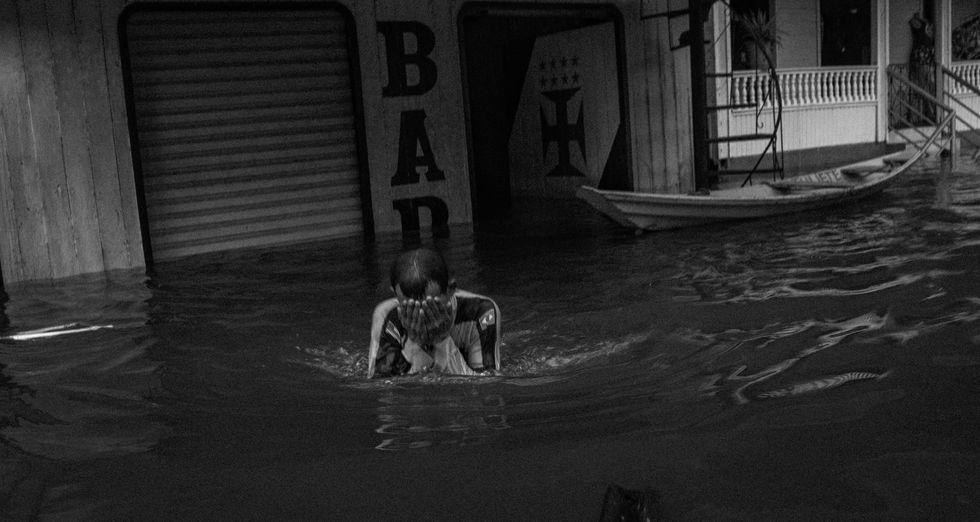
Courtesy of
Raphael Alves
Climate Change Series
Raphael Alves
Judges Choice
Born in Manaus (Amazonas, Brazil), Raphael Alves studied Social Communication with a major in Journalism at the Federal University of Amazonas (UFAM). He also has a degree in Photography at the State University of Londrina (UEL) and in Visual Arts at the National Commercial Learning Service (SENAC). He also obtained a Master of Arts degree in Photojournalism and Documentary Photography at the London College of Communication / University of the Arts, London.
In addition to collaborating with national and international agencies, magazines, and newspapers in his region, he is a member of the Everyday Brasil project (www.instagram.com/everydaybrasil). His projects are dedicated to understanding the role and positioning of the human being in the space divided by nature and the urban in the Amazon region.
Anamã, the Amazonian Venice
Anamã, Brazil
2021
"Welcome to the Venice of the Amazon," reads a sign in Anamã, in northern Brazil. As every year, the rise of the river has filled its streets with water, but now it is experiencing its greatest flood: canoes have replaced cars, and snakes and alligators roam the stilt houses.
Anamã has been an "amphibian city" for years. To escape the floods, residents and merchants have been forced to build "marombas", as the floors made of wooden planks located on top of palafita houses are known in Brazil. Many families have had to leave their homes, drinking water arrives cloudy, and with a bad smell, products are becoming scarce in stores, and patients in the region's hospitals are treated in rafts.
Meanwhile, life seems to have stopped for a moment in this small village. The floods have also washed away suspicions about the coronavirus pandemic, which hit the state of Amazonas hard during the first and second waves of a health crisis that already leaves more than 455,000 dead in the country. Nobody wears a mask on the Anamã channels, and little is said about the virus. The only concern of its inhabitants is when the water level will begin to drop again. "We got used to living like this. The flood has even helped to calm the pandemic around here. People only leave their houses to fish. It's all we can do. We have moved from one sort of isolation to another, " a resident says.












